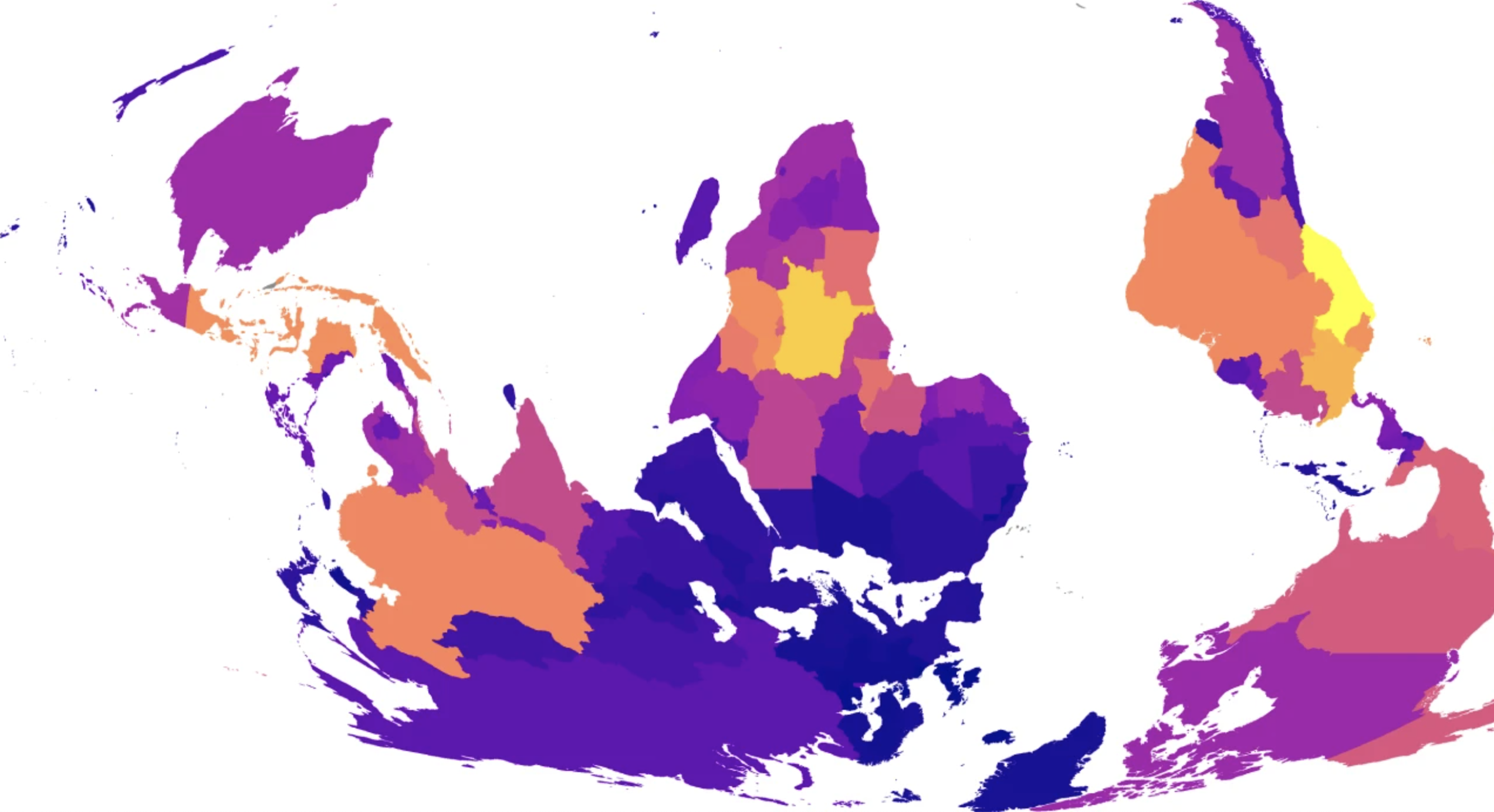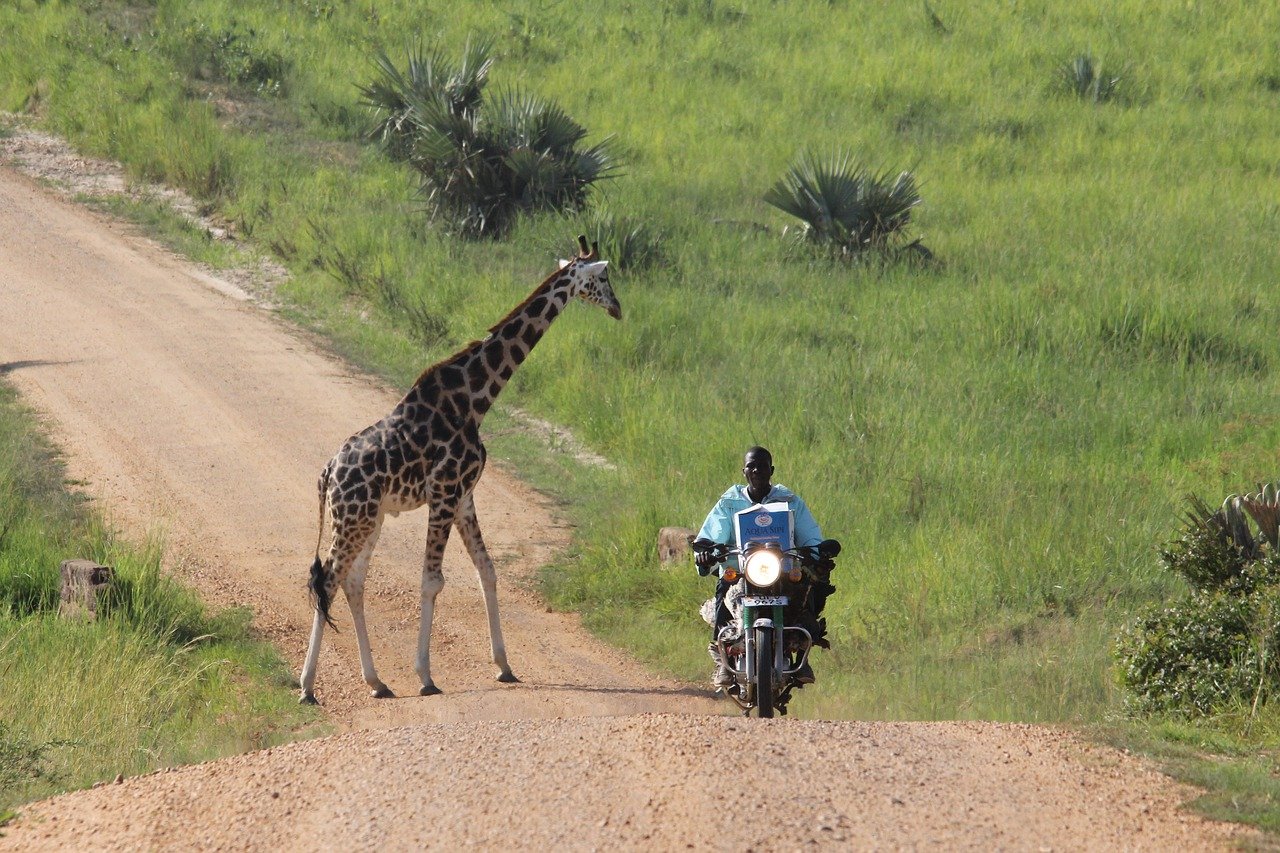A simple world map centered on the continent of Africa with the Southern hemisphere at the top turned out to be quite unsettling for many people. This map was one of two figures from a paper we published in the journal Nature Ecology and Evolution (with our colleague Chris Trisos ) calling for a push for decoloniality and anti-oppressive practices in ecology to make research in the field more inclusive and ethical.1 In the paper, we drew upon substantial interdisciplinary literature to illustrate the extent to which the emergence and growth of Ecology and Conservation as disciplines has been shaped by colonial norms and practices. We outlined five shifts in research practice to begin opening these important disciplines up to a more historically responsive and ethically responsible position. As three academics from the Global South trained partly in universities of the Global North, we wanted to offer not just a critique of ecology from a decolonial perspective, but also some clear actions to help address the critique. We anticipated a certain level of defensiveness from certain domains within Ecology and Conservation, but as it happened, it was our map that provoked the strongest reactions!
When our paper was published and received some broader media attention, our map turned out to be rather triggering to a number of people, primarily on Twitter. Why is the map “upside-down?” people started asking, while some right-wing ideologues went so far as to accuse Nature of becoming too “woke,” or having “outsourced their peer-review to Teen Vogue!” Didn’t we know that the compass points north? we were asked even as some went to the trouble of “fixing” the map for us by rotating the figure to its “correct” orientation with the Northern hemisphere at the top.
Reassuringly, the people “triggered” by the “upside-down” map were, on investigation, not ecologists but right-wing defenders of the status quo. Yet even some of our academic colleagues asked why we chose to use a “non-standard” map. The map we chose because it simply showed the continents projected in more accurate proportions with Africa appropriately bigger than Greenland, gave even some academic geographers pause as it displaced Europe and North America from their normative dominance over the rest of the world that is so ‘standardized’ to have become invisible and therefore all but un-questionable.
In the reactions to our map, we get a glimpse of the deep-seated bias internalized by too many of us in our education about the world. Maps, after all, are not neutral representations of geography, but rather projections of political power that guide and shape our understanding of the world. That 0º longitude passes through England, and that most maps show Europe and North America as proportionally larger than they actually are is a direct reflection of European colonial power at the time when visual representations of the world were being standardized. This historical ‘snapshot’ has become frozen in time and now distorts our worldview by compelling one perspective, instead of enabling multiple ways of seeing our complex world.
In this collection of essays, a range of scholars largely from the global south hold the mirror up to the colonial establishment at the heart of Western Science and reflect on how much the legacy of colonial histories and ongoing oppressive political arrangements have distorted our understanding of the world. Science is not a neutral practice, despite its claims of objectivity and methodological attempts to overcome bias. The colonial frameworks underlying Western Science and the implicit and explicit biases that come with those frameworks have damaging consequences for many people while also limiting science’s potential to help us understand the nature of reality.
The following essays explore some of the past and ongoing damage from Western Science and ‘ways of knowing’ continuing to be conducted in the molds established during the historic era of European colonialism. This damage ranges from implicit linguistic bias in ostensibly objective peer-review processes favoring English in a world where the majority of people do not speak the language, to the displacement of indigenous people through land-theft in the name of nature conservation, to an incomplete and even false understanding of nature due to the biases of the dominant colonial paradigms that underpin what, and how, we ‘know’ what we know about our universe.
The knowledge systems that we work in and with today are not fait accompli, but a combination of social, political, and economic choices. The sciences are critical tools for facing up to the Sixth Mega-Extinction, for coping with COVID-19 and future pandemics, and for finding solutions to the multitude of complex challenges that we face. Yet to support a sustainable and inclusive world, the sciences must also grapple with their embeddedness in systems of power and domination that manifest as simply as world maps, and through the complex systems that lead to ‘scientific’ exclusion. These essays share personal experiences and perspectives, as well as offer ways to decolonize science so that we may help science live up to its positive potential.
References:
[1] Trisos, C.H., Auerbach, J. & Katti, M. Decoloniality and anti-oppressive practices for a more ethical ecology. Nat Ecol Evol 5, 1205–1212 (2021). https://doi.org/10.1038/s41559-021-01460-w








